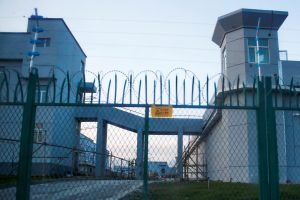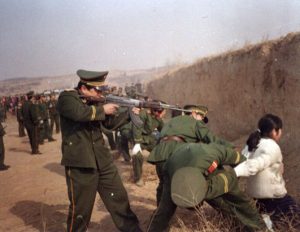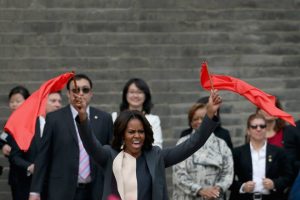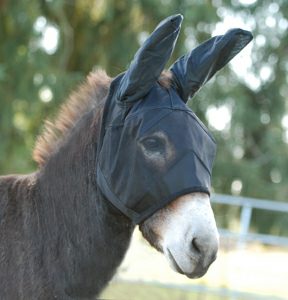





Editor’s Note: Tel us more about the surveillance state. The Dazis know. Maybe we should have a conversation with Joe Biden and also ask for the call logs.
China’s global ambition ‘like the rise of Nazi Germany’, Government MP says
Explosive comments from the head of the powerful intelligence committee comparing China to Nazi Germany’s rise have sparked fury.
China’s embassy in Australia has responded with fury to explosive remarks made by a Liberal MP and the head of parliament’s powerful intelligence committee.
West Australian backbencher Andrew Hastie today compared China’s growing global ambition and militarisation to the rise of Nazi Germany in an opinion piece for Channel 9 newspapers.
The pointed remarks sparked anger from China, which said Mr Hastie had threatened relations between Australia and the Asian superpower.
Mr Hastie’s warning of the unprecedented economic and national security risk posed by China has divided the Coalition.
Home Affairs Minister Peter Dutton gave him something of a slap-down while Prime Minister Scott Morrison sought to water down the seriousness of the situation.
“The West once believed that economic liberalisation would naturally lead to democratisation in China,” Mr Hastie, who is chair of the Parliamentary Joint Committee on Intelligence and Security, wrote.
“It would keep us safe, just as the French believed their series of steel and concrete forts would guard them against the German advance in 1940. But their thinking failed catastrophically.
“The French had failed to appreciate the evolution of mobile warfare. Like the French, Australia has failed to see how mobile our authoritarian neighbour has become.
“Even worse, we ignore the role that ideology plays in (China’s) actions across the Indo-Pacific region.”
In a strongly worded statement released this afternoon, a spokesperson for the Chinese Embassy said Mr Hastie had undermined the “mutual trust” between Australia and the Asian superpower.
“We strongly deplore the Australian federal MP Andrew Hastie’s rhetoric on ‘China threat’ which lays bare his Cold War mentality and ideological bias,” the statement said.
“It goes against the world trend of peace, co-operation and development. It is detrimental to China-Australian relations.
“History has proven and will continue to prove that China’s peaceful development is an opportunity, not a threat to the world.
“We urge Australian politicians to take off their ‘coloured lens’ and view China’s development path in an objective and rational war. They should make efforts to promote mutual trust between China and Australia, instead of doing the opposite.”
China is Australia’s largest trade partner and provides a tricky balancing act for the government, which has expressed some concern in the past about Beijing’s activities in our backyard.
The swift advancement of military development on artificial islands in the South China Sea foreshadowed a significant investment in Pacific states and a series of troubling proposed bases.
US intelligence agencies believe China is getting more and more self-confident and is rapidly reaching the point where it could be willing to use force to establish its claims over the South China Sea and Taiwan.
“The biggest concern is that they are going to get to a point where the (military) leadership may actually tell President Xi Jinping that they are confident in their capabilities,” a senior defence intelligence official told media in January.
“As these technologies mature, as their reorganisation of their military comes into effect, as they become more proficient with these capabilities, our concern is we’ll reach a point where internally, within their decision-making, they will decide that using military force for a regional conflict is something that is more imminent.”
Reports in US media about an apparent secret deal between Beijing and the Cambodian Government to take over a naval base on the Gulf of Thailand further rattled nerves last month.
The location of the base would allow the Chinese Government to more vigorously enforce its claims in the South China Sea and extend greater political control over the region, including the strategically important Malacca Strait.
“Australia has a strong interest in regional stability, security and prosperity and is engaging closely with our partners in support of this goal,” a Department of Foreign Affairs and Trade spokesman said.
“We would be concerned at any developments that could upset the strategic balance in the region.”
Over the past two years, Cambodia has accepted more than $850 million in loans under China’s trillion-dollar Belt and Road Initiative.
In less than a decade, China’s navy has gone from a largely coastal and regional force to a fully-fledge bluewater presence.
Its ships are modern, large and very well equipped, and this has defence analysts wondering about Beijing’s ultimate ambitions.
The US Naval War College met in May to discuss the directions the Chinese People’s Liberation Army Navy is expanding in.
It noted China has commissioned nearly four times more ships than the United States in the past decade. And this pace of expansion shows no sign of slowing.
It comes amid reports Australia is setting up its own Pacific support force.
According to The Australian, Australia is setting up a new army training force to work with its Pacific neighbours.
Papua New Guinea, Fiji and Vanuatu are among the regional partners with whom the Brisbane-based Pacific Support Force will work.
It’s also been revealed the Australian Defence Force is “considering options for a dedicated vessel” to support its involvement with Pacific navies.
“It will conduct a range of activities, such as exercises and operations with Pacific security forces and key agencies, to build interoperability with our partners,” the briefing says.
GO RED CHINA! GO RED CHINA! GO DAZIS! GO DAZIS!





